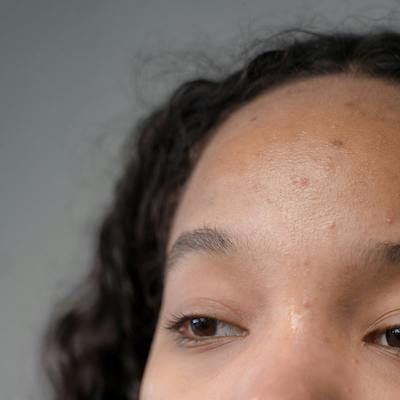Article
Guselkumab Provides Consistent Psoriasis Clearance Over 5 Years
Author(s):
An assessment of long-term VOYAGER 1 and 2 trial data show the IL-23 biologic provides significant benefit toward skin clearance, regardless of baseline characteristics.
Kenneth Brian Gordon, MD

Guselkumab provided significant efficacy and sustained tolerability over 5 years of psoriasis treatment, according to new long-term data from the pivotal VOYAGE 1&2 trials.
In data presented at the American Academy of Dermatology (AAD) 2022 Annual Meeting in Boston, a team of Janssen-supported investigators presented long-term data showing the benefit of the interleukin 23 (IL-23) biologic over a half-decade in patients with moderate to severe psoriasis.
Even more significantly, the findings showed similar efficacy endpoints being achieved by patients stratified by baseline clinical characteristics and disease severity.
Led by Kenneth Brian Gordon, MD, chair and professor of dermatology at the Medical College of Wisconsin, investigators sought to examine 5-year data from VOYAGE 1&2—a randomized, double-blind, placebo-controlled clinical trial of guselkumab in adults with psoriasis—based on patients’ baseline characteristics. Their assessment included 1829 patients—837 from VOYAGE 1, 992 from VOYAGE 2.
Trial patients had received 1 of 3 treatment regimens:
- 100 mg guselkumab subcutaneous injections at baseline and week 4, then every 8 weeks
- Placebo at baseline, week 4 and 12, then 100 mg guselkumab at weeks 16 and 20, then every 8 weeks
- 80 mg adalimumab subcutaneous injections at baseline, 40 mg at week 1, then every 2 weeks
Patients in VOYAGE 1 entered open-label guselkumab regimens from week 52 to 252; patients in VOYAGE 2 were randomized to withdrawal, then permitted into an open-label guselkumab regimen from week 76 to 252.
Gordon and colleagues assessed all patients randomized to guselkumab at baseline, placebo at baseline then guselkumab at week 16, and adalimumab at baseline then guselkumab at week 28 (VOYAGE 2) or 52 (VOYAGE 1). They assessed proportion of patients achieving Investigator’s Global Assessment (IGA) of Clear or Minimal (0/1) psoriasis and 90% clearance per Psoriasis Area and Severity Index (PASI 90) responses, which were recorded for VOYAGER 1 and 2 patients at weeks 100, 156, 204, and 252.
Patients were additionally stratified by baseline characteristics including body surface area (BSA), IGA and PASI, and psoriasis treatment prior to the trials.
Mean patient age at baseline was 43.6 years old; the population was 71.1% male, with a mean body mass index (BMI) of 29.6. Patients had been diagnosed with psoriasis for a mean 17.7 years, with mean 28.2 BSA and 21.8 PASI scores at baseline. A majority of patients scored a baseline IGA score of 3 (76.0%), indicating Moderate disease; another 23.8% scored a 4, indicating Severe disease. Approximately two-thirds (63.2%) of patients previously treated their psoriasis with non-biologic systemic therapy; another half (55.8%) treated with phototherapy.
At 5 years, the following rates of patients treated with guselkumab to achieve IGA 0 or 1 were observed in each pre-identified baseline characteristic group:
- 85.4% of patients with PASI <20 at baseline
- 81.4% of patients with PASI ≥20 at baseline
- 85.1% of patients with IGA score of <4 at baseline
- 78.9% of patients with IGA score of 4 at baseline
- 85.1% of patients with BSA <20% at baseline
- 82.6% of patients with BSA ≥20% at baseline
- 83.3% of patients who never used phototherapy at baseline
- 83.8% of patients who used phototherapy at baseline
- 84.5% of patients who never used non-biologic systemic therapies at baseline
- 83.2% of patients who used non-biologic systemic therapies at baseline
- 85.3% of patients who never used biologics at baseline
- 76.7% of patients who used biologics at baseline
Such rates among patients with psoriasis treated with guselkumab were similar for the PASI 90 outcome at 5 years, stratified by baseline characteristics.
“In the VOYAGE 1&2 studies, guselkumab demonstrated high efficacy and durability through 5 years of treatment across broad subpopulations of patients with varying disease severity characteristics and previous psoriasis treatments,” investigators concluded.
The study, “Efficacy Responses Across Disease Severity and Treatment History Subgroups of Patients with Moderate to Severe Plaque Psoriasis Treated with Guselkumab: Pooled Results from Voyage 1&2 Through 5 Years,” was presented at AAD 2022.





